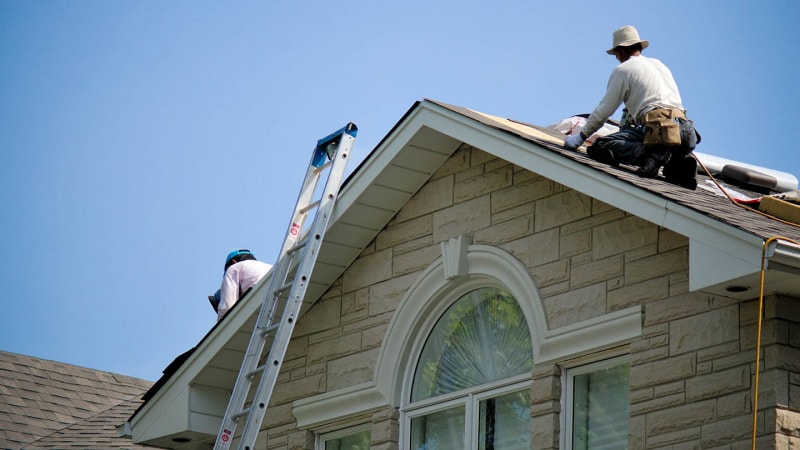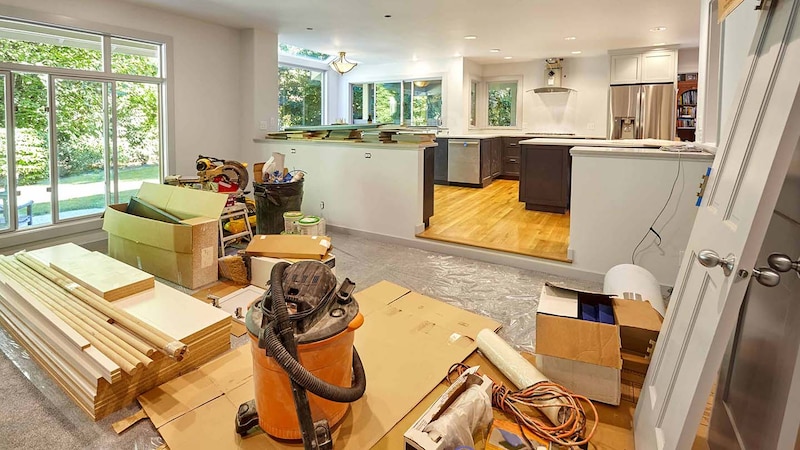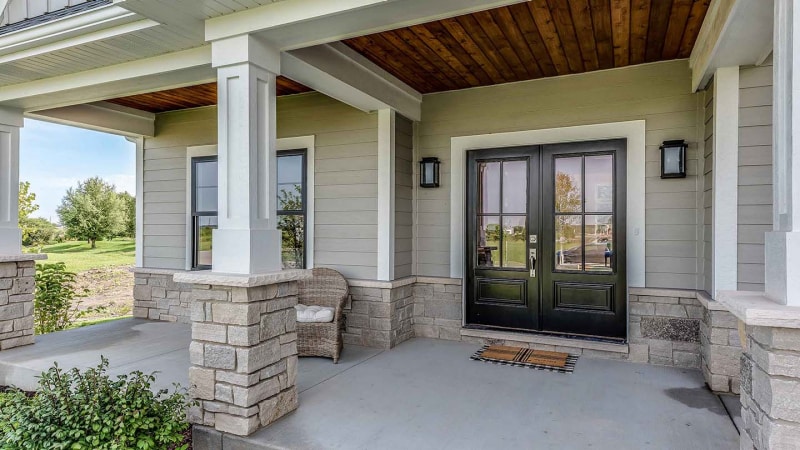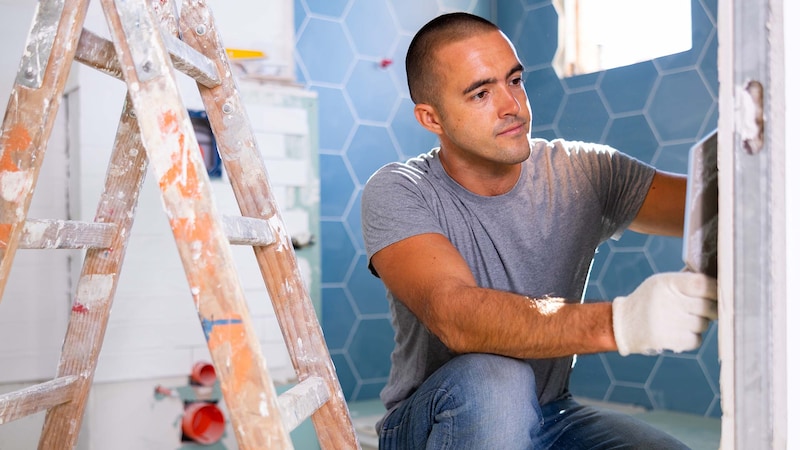How much do solar panels cost, and are they worth installing?

Installing solar panels is one of the ways you can potentially cut down on your utility bills, help increase your home's value and participate in sustainability initiatives. That said, many homeowners may need to weigh the costs and benefits when committing to such a substantial project.
What are solar home panels?
Let's start by specifying what a solar panel is. A solar panel is a device that collects energy from sunlight and generates it into electricity. When doing your research, you can also encounter the name photovoltaic (PV) panels, often used interchangeably.
Solar panels draw the attention of homeowners for a couple of reasons. They don’t pollute the air or emit carbon dioxide, which makes them a far more sustainable way to produce energy in comparison to fossil fuels, such as coal and gas. Solar panels may also help you save money on utility bills and potentially increase your home’s value if it's put on the market.
How do solar panels work?
When solar panels are exposed to sunlight, the material releases electrons and produces an electrical charge. However, only a certain portion of sunlight that hits a panel can be converted into electricity; this amount is calculated in percentages and is called solar panel efficiency. From the panels, a charge is forwarded to inverters, which change it into alternate current (AC) electricity, the type most used to power houses. Any excess energy can be stored in batteries or sent to the local power grid. Most commonly, solar home panels can be mounted on rooftops, though you can also install them on the ground or over a parking lot.
Different types of solar panels
As detailed by This Old House, opting for solar energy in your home is a smart and sustainable choice. You have three excellent types of solar panels to consider, each with its own unique benefits:
- Monocrystalline panels: These panels are highly efficient, with an efficiency rating of over 20%, and are known for their durability. They are ideal for homes with limited roof space, offering excellent energy savings and long-term performance.
- Polycrystalline panels: These panels provide good efficiency, ranging from 15% to 17%, and are more budget-friendly. They are a practical choice for those looking to switch to solar energy without a high upfront cost, making renewable energy more accessible.
- Thin-film panels: Lightweight and flexible, these panels are perfect for unique and innovative projects. They offer versatility and are well-suited for larger installations or creative energy solutions, providing adaptability in various applications.
The cost of solar panels
Before deciding whether you should commit to solar panel installation, you may want to calculate all the costs and see if it's a financially sound choice.
According to a 2025 survey of 1,000 solar customers, the national average price for a single solar panel professionally installed is $1,200. This means most full-size systems of between 20 and 30 panels cost between $24,000 and $36,000.
This number does not include any rebates or financial incentives that are available for homeowners. However, the price of solar panels may vary significantly and be quite different for your house. If paying the whole sum upfront is too much, you could consider looking into solar loans or energy-efficient mortgages (EEM) that may help you finance the purchase.
Below, you can see what aspects to keep in mind when estimating how much a solar panel will cost in your case:
- Type of Panel: The type of solar panel you choose significantly impacts both cost and performance. Monocrystalline panels offer the highest efficiency and cost more, while polycrystalline panels provide a balance between cost and output, and thin-film panels are less efficient but versatile.
- Home Size: Larger homes typically require more power, leading to larger systems and higher costs. Roof space, shape, and orientation also influence the overall cost.
- Annual Energy Usage: Your electricity consumption determines your system size. Higher energy usage requires larger and more expensive solar setups.
- Equipment Selection: Supporting equipment like inverters, racking systems, and monitoring technology plays a major role in system performance and cost. Choosing the right components can enhance energy output and long-term savings.
Are solar panels worth it?
Generally, solar panels should save you more money than they cost. Usually, they pay for themselves slowly over several years, so think about your long-term plans and the impact solar panels could have on your bills. If you want to sell your home in the future, you may want to analyze your local real estate market since this enhancement may add value to your property and attract more potential homebuyers.
As with other sustainability-related topics, the monetary benefits are not all that’s worth considering. Solar panel installation may be an option for those who are trying to practice a more sustainable lifestyle, as solar energy does not create air emissions and is a renewable energy source.
Solar panel installation incentives
When trying to calculate the cost of installing solar panels, you should also look at different incentives and rebates offered to encourage homeowners to switch to renewable energy. There are benefits on the federal, state and local levels, so your exact savings and returns might depend on your location, as well as the amount of energy your system produces. Some of the most popular incentives to know include the federal solar tax credit, Solar Renewable Energy Credits (SREC) and local utility rebates, among others.
In summary
The cost of solar panels can differ significantly depending on your area, the size of your home and how much electricity you consume. However, installing solar panels may save you money in the long run and make your property more appealing to potential buyers in case you decide to sell. This article is for education purposes only, please refer to a professional for advice.
Solar panel FAQs
1. How long does it take to install solar panels?
The time to install solar panels for your home depends on the project's scope and weather conditions, among other details. Generally, it may take from less than one day to several days.
2. Will solar panels increase the value of my home?
Installing solar panels could possibly increase the value of your property if you decide to sell. Studies show that it can boost the home's value by $15,000 on average.
3. Can I install solar panels myself?
Yes, it is possible to install solar panels on your own. However, it requires some experience with electrical projects and more-than-basic tools. While cost-effective, this undertaking could be time-consuming and might void the manufacturer's warranty.
4. How can I finance my solar panel installation?
There are a few options to consider if you want to finance solar panels: You can apply for a dedicated solar loan, personal loan or home equity loan, just to name a few options. You could also consider a different approach and explore solar leasing or a solar power purchase agreement (PPA) to lower the upfront costs. Chase does not offer solar loans, personal loans, nor home equity loans.



